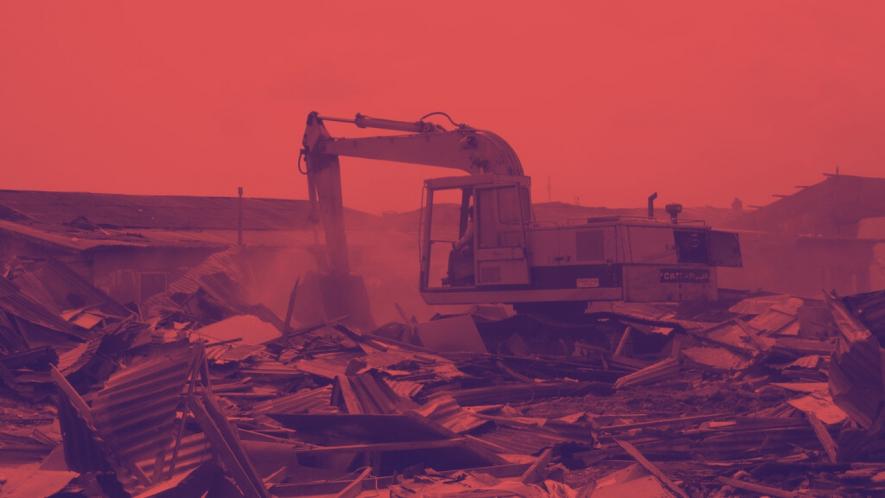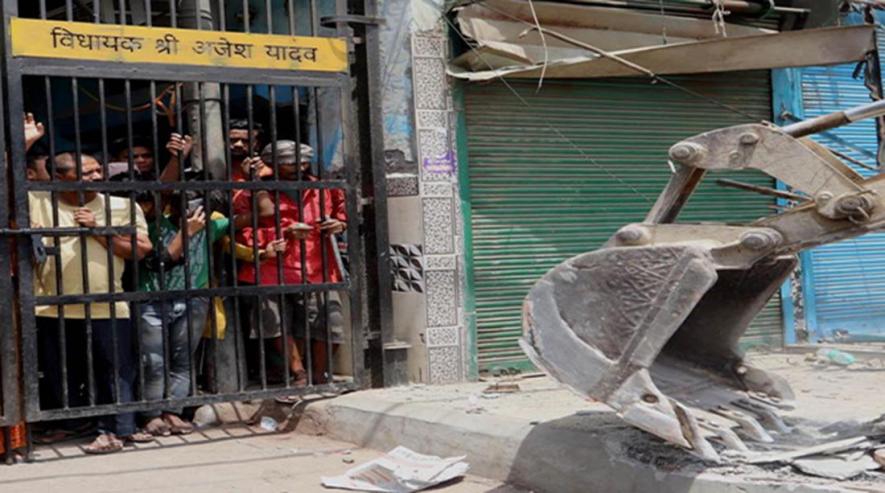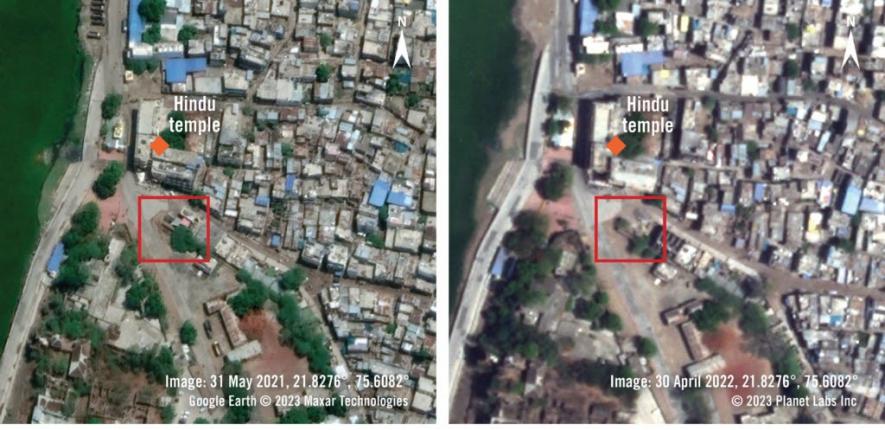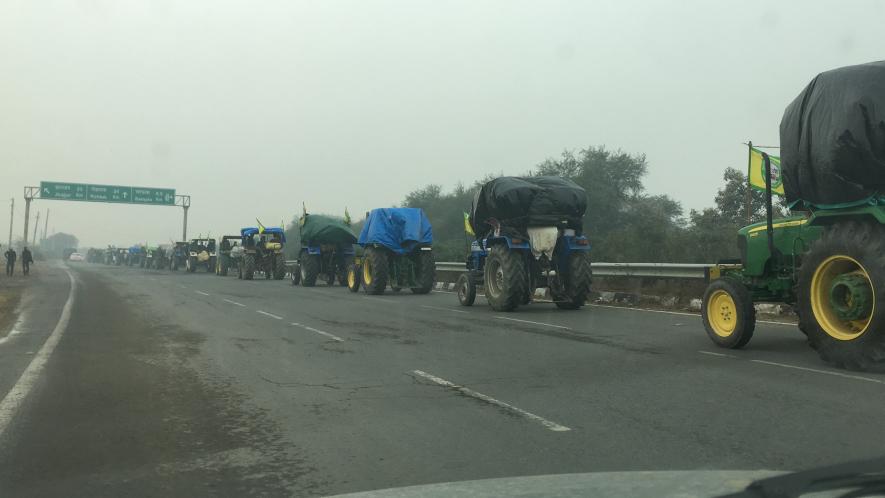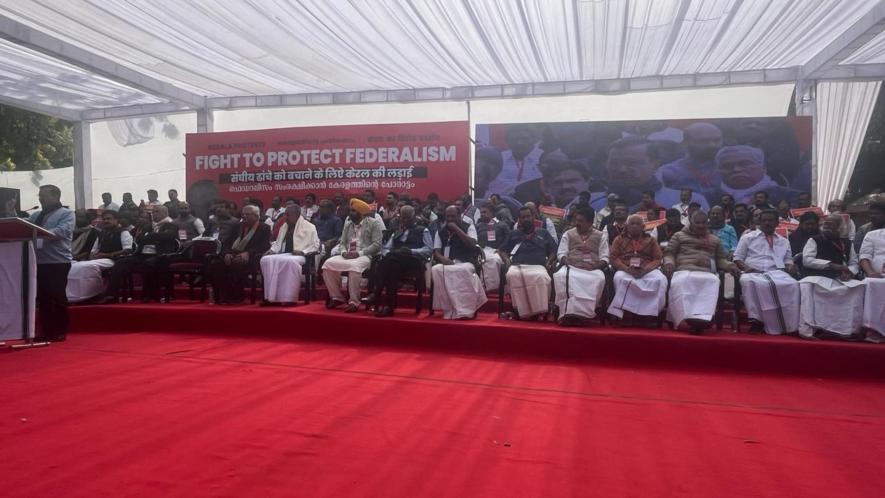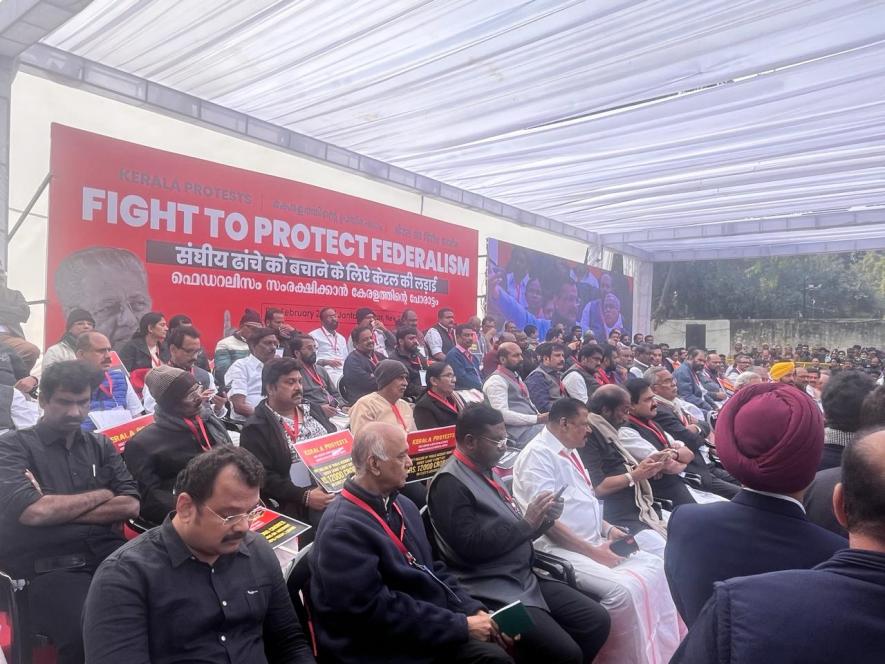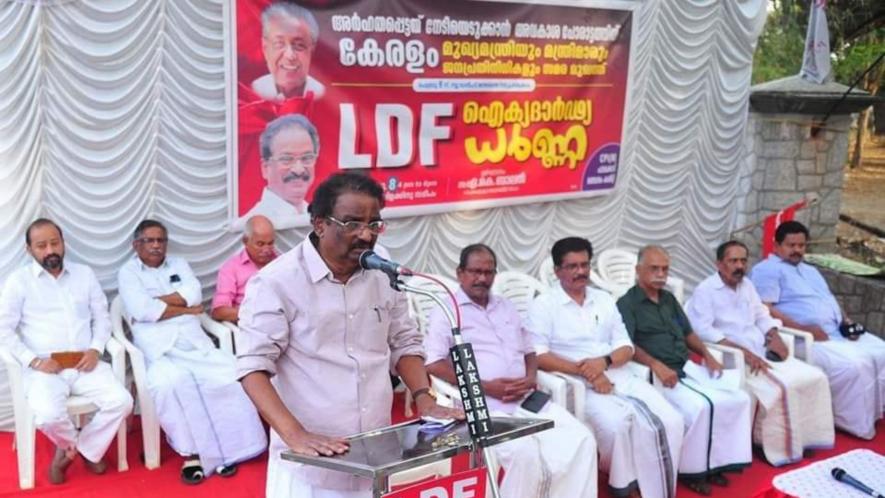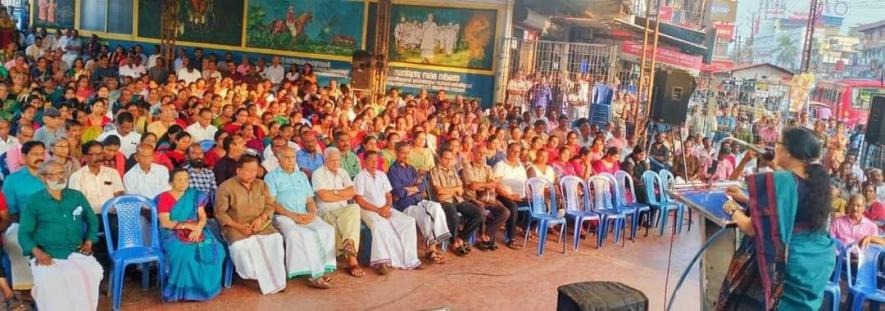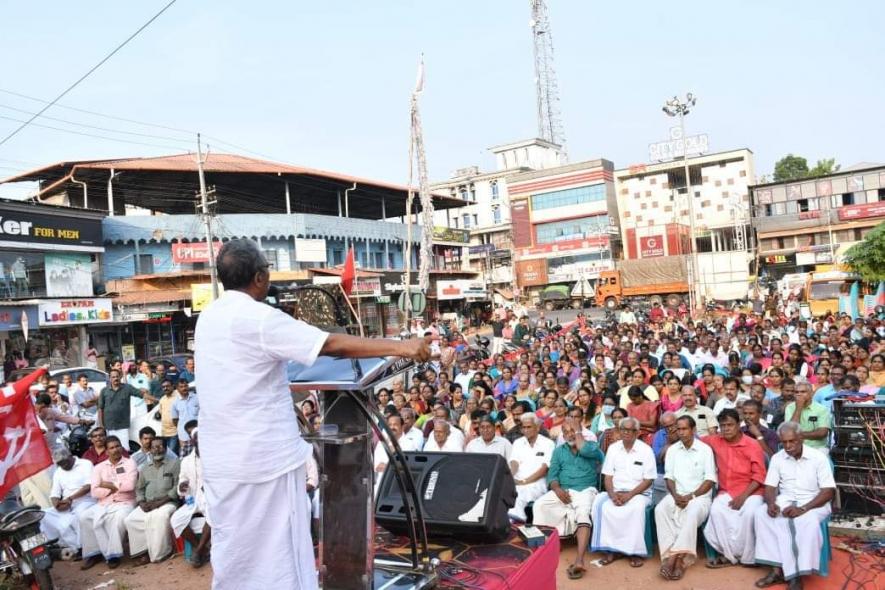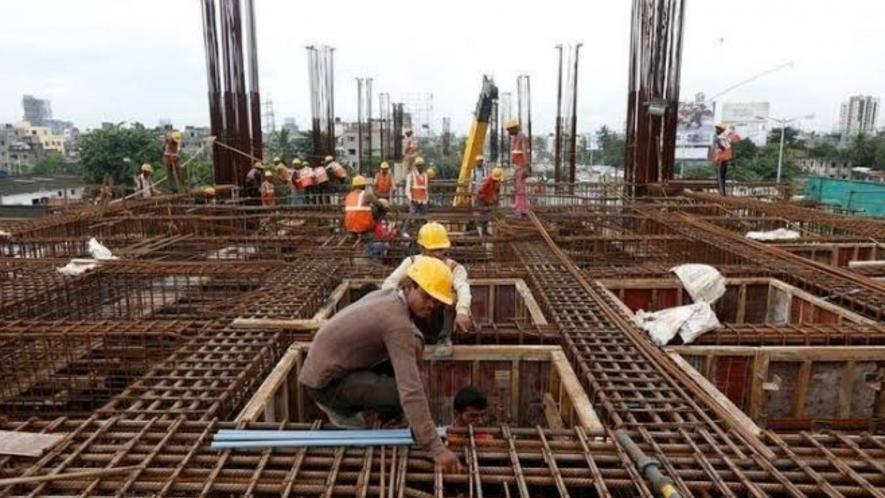WHAT DOES THE ICJ RULING ON GAZA MEAN?
In an article titled “Can Israel Be Charged With Genocide?” that appeared in these pages on December 3, 2023, the three of us presented an early case for why the assault that began on October 8, 2023 against the population of Gaza should be prosecuted as a genocide.
In that article, we had noted that genocides can take place in wartime as well as in the absence of an armed conflict and that the constitutive elements of a genocide are the intentional infliction of killings, physical or mental injuries, forced population transfers, birth restrictions, or insufferable conditions calculated to bring about the destruction in whole or in part of a protected group.
Some weeks after that article appeared, the Republic of South Africa filed a petition with the International Court of Justice (ICJ), charging Israel with perpetrating a genocide as per the Genocide Convention of 1948. On January 26, 2024, the ICJ ruled on provisional measures requested by South Africa.
MAKING SENSE OF THE ICJ RULING
The Court accepted that “[t]he Palestinians appear to constitute a distinct ‘national, ethnical, racial or religious group’, and hence a protected group within the meaning of Article II of the Genocide Convention” and that the Palestinians of the Gaza strip comprise a substantial part of the protected group.
In the Bosnia and Herzegovina v. Serbia and Montenegro case, wherein the latter governments were found to have failed in their duty to protect the Bosnian Muslims against genocide, the ICJ had laid out the principle that a group deserving protection needed to be established through a positive legal definition.
On January 26, 2024, the International Court of Justice ruled on provisional measures requested by South Africa in its case brought against Israel under the 1948 Genocide Convention. All of the ICJ rulings were endorsed by an overwhelming majority of the 17 judges on the bench. The Lums law faculty that had argued for charging Israel with genocide in these very pages in December, explains what the court proceedings mean…
In that case, the victims of genocidal acts were Bosnian Muslims and not simply an amorphously defined group of non-Serbs. Similarly, in the order it seems clear that the Palestinians of Gaza are in fact such a group. This will be consequential as the case proceeds because, as the Court grapples with death tolls and destruction, the Israeli side will likely seek to underplay the significance of these numbers.
We must recall that there is a long history of Israelis suggesting that there are no distinct cultural or political ties to distinguish Palestinians from Arabs broadly. Thus, in the morbid calculation of whether these deaths account for the ‘destruction’ in ‘whole or in part’ of such a group, the Court has established the parameters of study as these 2.2 million persons.
The Court ordered provisional measures under Article 41 of the ICJ statute. Such orders are akin to injunctions in domestic law and are intended to ensure that the claimed rights of the victims are not violated further, and the status quo between the parties is not changed irreversibly, before the court is able to make a decision on the merits. Since these orders are issued before a full investigation and trial, a higher evidentiary bar than “plausibility” is unreachable.
Thus, the Court found that some acts by Israel plausibly violate the rights of the Palestinians under the Genocide Convention. In paragraph 70, the Court noted that Israeli operations had caused “tens of thousands of deaths and injuries and the destruction of homes, schools, medical facilities and other vital infrastructure, as well as displacement on a massive scale,” and that “[a]t present, many Palestinians in the Gaza Strip have no access to the most basic foodstuffs, potable water, electricity, essential medicines or heating.”
In paragraph 71, it considered how “[t]he WHO has estimated that 15 percent of the women giving birth in the Gaza Strip are likely to experience complications, and indicates that maternal and newborn death rates are expected to increase due to the lack of access to medical care.”
Accordingly, the ICJ concluded that “the catastrophic humanitarian situation in the Gaza Strip is at serious risk of deteriorating further before the Court renders its final judgment,” and that “there is urgency, in the sense that there is a real and imminent risk that irreparable prejudice will be caused to the rights found by the Court to be plausible, before it gives its final decision.”
The ICJ also emphasised in paragraph 83 that its orders of provisional measures are binding, as per the Ukraine v. Russian Federation case of 2022. The binding effect of provisional measures was earlier clarified in the LaGrand case between Germany and the United States in 2001.
Israel is ordered to “take all measures within its power to prevent the commission of all acts within the scope of Article II of [the Genocide] Convention.” These include killing; causing serious bodily or mental harm; imposing conditions calculated to cause physical destruction in whole or part; and restricting births within the victim group.
The specific provisional measures ordered by the Court are explained in paragraphs 78 through 82 of its judgment. Israel is ordered to “take all measures within its power to prevent the commission of all acts within the scope of Article II of [the Genocide] Convention.” These include killing; causing serious bodily or mental harm; imposing conditions calculated to cause physical destruction in whole or part; and restricting births within the victim group.
Evidence of these by the Israeli military is copious, as the judgment suggests. The Court accordingly orders “that Israel must ensure with immediate effect that its military forces do not commit any of the above-described acts.”
However, evidence of a genocidal intent behind these acts is also necessary, and more challenging to establish. The Court affirms that “these acts fall within the scope of Article II of the Convention when they are committed with the intent to destroy in whole or in part a group as such.”

THE EVIDENCE
Much of what was presented by South Africa as evidence of intent to commit genocide was already familiar to those who have been watching the events in Gaza unfold; it was nonetheless momentous that the Court relied upon these statements of high governmental officials and did not, as Israel argued, consider them to be misconstrued, or only narrowly aimed at the eradication of Hamas rather than the whole of the population of Gaza.
Thus, the Court rightly quoted Yoav Gallant, Israel’s Minister of Defence, as saying “I have released all restraints… We are fighting against human animals… Gaza won’t return to what it was before. There will be no Hamas… We will eliminate everything.”
Also, the President of Israel, Isaac Herzog, was quoted saying, “It is an entire nation out there that is responsible. It is not true this rhetoric about civilians being not aware, not involved.” Further, the Court quoted the Minister of Energy and Infrastructure, Israel Katz, saying “We will fight the terrorist organisation Hamas and destroy it. All the civilian population in [G]aza is ordered to leave immediately. We will win. They will not receive a drop of water or a battery until they leave the world.”
Coming from such key decision makers, these words may constitute incitement to genocide under Article III paragraph (c) of the Convention. Accordingly, in paragraph 79 of its order, the Court orders Israel to “take all measures within its power to prevent and punish the direct and public incitement to commit genocide in relation to members of the Palestinian group in the Gaza Strip.”
As there will inevitably be further attempts by Israel to convince the Court that these statements by cabinet ministers and high officials have nothing to do with war strategy, it will be important for the South African side to document the methods of war being employed: methods that we are convinced are tied to a logic and intention of eradication rather than of gaining strategic advantage over an adversary.
To enable the necessary documentation, in paragraph 81 of its order, the Court instructs Israel to take all measures necessary to preserve evidence of the allegations under Articles II and III of the Convention, and, in paragraph 82, the Court orders Israel to report on the measures it has taken to comply with the judgment within the next month, that is, by the end of February.
South Africa explained that evidence of Israeli intentions went beyond the incontrovertible incendiary statements issued by high government officials. In oral submissions, it sought to establish the existence of an organisational plan or policy to cause significant harm to civilian life and infrastructure.
South Africa’s legal team quoted instances of soldiers in the field chanting and repeating the genocidal language of the high military and civilian commanders. It indicated that a clear and necessary inference had to be drawn that the soldiers were implementing the genocidal directives being issued from on high.
ISRAEL’S GENOCIDAL PLAN
We think it will be important to introduce into evidence the accounts that have circulated and not been refuted by Israel of their army’s “expanded authorisation for bombing non-military targets, the loosening of constraints regarding expected civilian casualties, and the use of an artificial intelligence system to generate more potential targets than ever before.”
Yuval Abraham presents a chilling view of how this campaign has expanded the range of targets beyond standard military installations and militant cells to include universities, banks and government offices as well as civilian homes. The record of targeting has increasingly shown that hospitals, United Nations safe sites, religious sites and others are also not accorded any special immunity.
Through his interviews with sitting and former members of Israel’s intelligence community, Abraham provides detailed insight into how the fetters have come off and rendered claims that the IDF is acting with any view to abiding principles of proportionality and discrimination as absolute ruse. In some outstanding examples, upwards of a hundred people are killed in attacks seeking to take out one supposed Hamas militant. More commonplace are the attacks where up to five civilians may be sharing a living space with a Hamas member.
Even more disturbing is the fact that the pace of targeting has picked up due to a reliance upon an AI targeting system called “The Gospel.” Over the last decade, some academic space has been dedicated to unravelling the ethical implications of new military technologies which are unmanned and or replace human calculation and decision-making with computation. The knowing use of a system that is programmed to identify targets at a speed that outpaces an advanced military’s ability to launch those attacks indicates an orientation to deliver destruction and not accuracy.
While in an interview from a later date, Abraham suggested that a final, human authorisation for attack needed to be given, he also suggested that this was often done in extreme haste, in a matter of seconds. Ethicists have roundly agreed that the only safeguard that matters for ensuring principles of humanity subsist during warfare is for there to be appropriate and significant human intervention where such systems are deployed.
We think that the evidence, not only contained in Abraham’s article but also thereafter verified by sources such as the Guardian, indicate that the abdication of this responsibility by Israel is itself indicative of a genocidal plan.
Evidence will be necessary not only to determine whether Israel’s actions constitute genocide, but also whether they are violations of the law of war and, in particular instances, war crimes. To argue this further, we restate and elaborate upon concerns presented in our earlier article about complications that are likely to ensue when the facts of the post-October 8th assault on the Gazan population are assessed.
Under the South African case, this assessment will be under the Genocide Convention but, as we have seen through Israel’s rebuttal to the case, Israeli operations are also capable of being assessed separately through the laws of war.

THE LAWS OF WAR
The law of war comprises two fundamental branches: jus ad bellum and jus in bello. The former delineates the justifications for initiating warfare and the normative underpinnings for the initial use of force, while the latter establishes the humanitarian principles governing the conduct of warfare — encompassing the means and methods of armed conflict.
The Court unequivocally emphasised Israel’s obligation to adhere to jus in bello or international humanitarian law (IHL) in its conduct of hostilities and the protection of both civilians and combatants. Notably, however, the Court’s silence on jus ad bellum, enshrined in the UN Charter Article 51 ‘Right of Self-defence’, may be attributed to its limited jurisdiction under the Genocide Convention and the ICJ statute. Article 51 is intended to protect the sovereignty of a state, a fundamental tenet of international law emphasised in the UN Charter Article 2(4).
If the Court had unhindered jurisdiction to assess the legality of Israel’s actions under general international law, it might have explicitly recognised Israel’s disproportionate use of force and directly asked for a cessation of hostilities. However, the basis of the ICJ exercising jurisdiction in this case was the “compromissory clause” of the ICJ statute Article 36(1), which accords jurisdiction over “matters specifically provided for … in treaties and conventions in force.”
This differs from jurisdiction under Article 36(2), which allows states to make declarations accepting the Court’s jurisdiction as compulsory, and where the Court can determine violations of international law more broadly.
Under the compromissory jurisdiction provided in the Genocide Convention under Article IX, the Court is limited to “[d]isputes between the Contracting Parties relating to the interpretation, application or fulfilment of the present Convention, including those relating to the responsibility of a State for genocide or for any of the other acts enumerated in Article III [.]”
Since under a conventional interpretation of international law, self-defence and the law of use of force are outside the ambit of the Genocide Convention — considering genocide can be found both in times of peace and war — the Court preferred, in light of jurisdictional limits, to avoid the question of the cessation of hostilities.
However, a deeper reading of its judgment seems to establish that, for Israel to comply with International Humanitarian Law, the cessation of hostilities is now a requirement. Israel is claiming a right to self-defence against a straitjacketed, starving, helpless and largely illegalised people.
The sui generis or unique nature of this case stems from several factors: no country without the UN’s assent can provide any form of assistance to the Palestinians; Palestinians have no sovereignty over their own territories; Palestinian combatants cannot legally fight a war with Israel under the UN system or ask for assistance in the form of weapons or funds from any country; Palestinian armed groups are designated as terrorist organisations by Western Security Council members; and Palestinian armed groups cannot legally take prisoners of war.
Meanwhile, Israel has arbitrarily imprisoned thousands of Palestinians as prisoners or war or under other designations. According to Israel, Palestinian militant forces are all terrorist outfits that, as unlawful enemy combatants, do not enjoy combatant immunity.
We are asked to accept the absurdity that a heavily armed Israel is acting in self-defence, while any Palestinians who arm in self-defence are committing a war crime. Civilians who directly participate in hostilities have no combatant immunity and cannot use force. In other words, the Palestinian people, whose right of self-determination has been recognised by the UN, cannot exercise collective self-defence, because they are not a high contracting party to the Geneva Conventions.
If Israeli use of force in self-defence is allowed to continue in these circumstances, the Palestinians are sitting ducks — they are target practice, as the videos emanating from Gaza suggest.
GENOCIDE PLUS WAR CRIMES
Faced with the limitations of compromissory jurisdiction on the one hand, and the ongoing horror in Gaza on the other, the Court has imposed such strong humanitarian or jus in bello requirements on Israel that the only way for it to comply is through the cessation of its hostilities.
Even earlier in its advisory opinion in the Israeli wall case, the ICJ, for seemingly similar reasons, stated that self-defence cannot be applied over occupied territories as a justification for violating the human rights of Palestinians.
Without this interpretation of the current ICJ judgment, Palestinians effectively have no right to protect and defend their people and territories, something that clearly negates the corpus of international law.
Focus on the Genocide Convention should not distract us from Israeli violations of the laws of war generally, and war crimes in particular. Israel is still bound to obey the non-derogable and erga omnes [towards all] norms of IHL, those codified in Common Article III of the Geneva Conventions:
“Persons taking no active part in the hostilities, including members of armed forces who have laid down their arms and those placed hors de combat [out of action] by sickness, wounds, detention, or any other cause, shall in all circumstances be treated humanely, without any adverse distinction founded on race, colour, religion or faith, sex, birth or wealth, or any other similar criteria.”
Critically, Article III clarifies that “the following acts are and shall remain prohibited at any time and in any place whatsoever with respect to the above-mentioned persons: (a) violence to life and person, in particular, murder of all kinds, mutilation, cruel treatment and torture; (b) taking of hostages; (c) outrages upon personal dignity, in particular, humiliating and degrading treatment; [and] (d) the passing of sentences and the carrying out of executions without previous judgment pronounced by a regularly constituted court affording all the judicial guarantees which are recognised as indispensable by civilised peoples…”
As the facts recounted in the Court’s opinion and in news reports suggest, Israel is breaching many of these norms. Shockingly, Israel has recently even committed the war crime of perfidy: its soldiers donned civilian attire to enter hospitals to assassinate Palestinians. Combatants who undertake such violations of the law of war lose their combat immunity.
Israel appears to be violating Common Article III protections in a systematic way by targeting a largely civilian population. These are violations of the laws of war or human rights law but, collectively, such violations can also constitute a violation of Article II of the Genocide Convention.
Thus, even if Israel argues that IHL is the lex specialis or applicable law in the current attack — and not the Genocide Convention — this does not constitute a defence to the charge of genocide.
The applicability of Common Article III in all circumstances is affirmed in many judgments and will surely apply to the massacres in Gaza. Individually, violations of Article III constitute breaches of both humanitarian and human rights law; collectively, and as part of a system, they can constitute genocide.
The writers are faculty members at the Shaikh Ahmad Hassan School of Law, Lahore University of Management Sciences (Lums)
Header image: Protesters hold a Palestinian flag as they gather outside the International Court of Justice (ICJ) in The Hague, Netherlands on January 26, 2024: the ICJ found that some acts by Israel plausibly violate the rights of the Palestinians under the Genocide Convention | Reuters
Published in Dawn, EOS, February 11th, 2024

